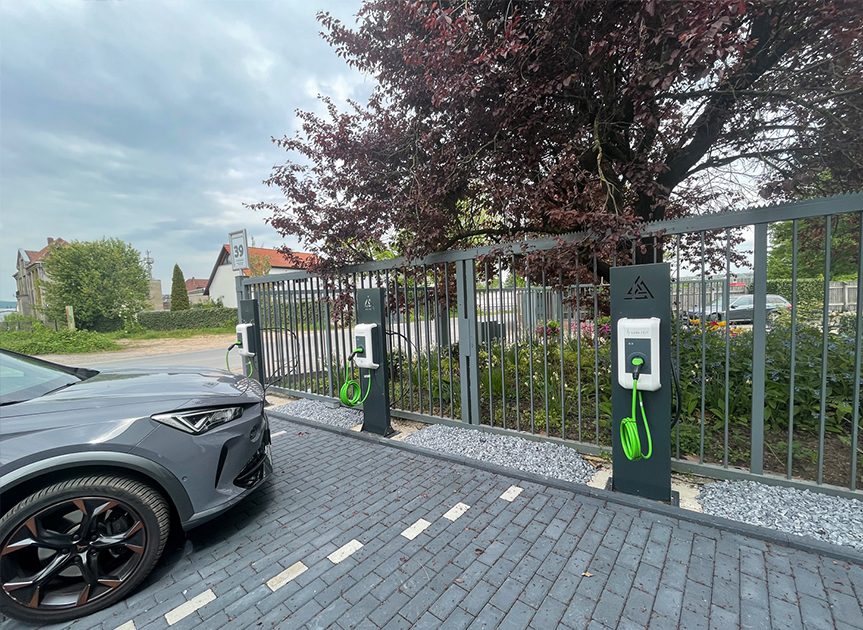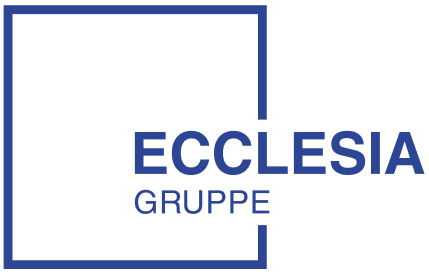
How to make the switch to e-mobility
At the latest since the EU member states decided to phase out combustion engines in new cars from 2035, it has been clear that there is no way around electric mobility. However, companies and institutions still have many questions when it comes to converting their fleets. After all, climate-friendly mobility must, above all, also be economical. As part of its ecosystem, our Ecclesia Mobility Competence Center offers a holistic concept for the electrification of fleets that offers much more than just insurance and related services. Rather, our experts provide professional and comprehensive support to fleet managers in converting their fleets.
Does it make sense to electrify my fleet? How can I realize cost savings in the process? Which electric vehicles are best suited to the company's mobility needs? And what needs to be considered when setting up the necessary charging infrastructure? Fleet managers have to deal with these and other technical questions when considering the electrification of their fleet. Whether it's a feasibility analysis, vehicle selection, available subsidies or individual charging solutions – the Competence Center Ecclesia Mobility is a competent partner for smart fleet management and offers a holistic concept for the electrification of fleets in its motor vehicle ecosystem. “We work closely with specialized partners such as Project Climate and Lade.ZEIT, who specialize in the planning, development and operation of e-mobile fleets and the associated charging solutions,” explains Burkhard Pape, an expert at the Ecclesia Mobility Competence Center.
Making e-mobility easy
Although more and more attractive vehicles with alternative drives are coming onto the market and employees are signaling interest in e-vehicles, prejudices and individual requirements often slow down a switch to e-mobility. The main question that arises is whether it actually makes sense to electrify the fleet. The consultants at Project Climate deal with this question, supporting companies and institutions throughout the entire process of transforming their mobility. At the beginning of the collaboration, the individual situation is considered, on which the future-proof fleet concept is then based. First, a potential analysis is created using the available data or GPS tracking. It is the basis for specific recommendations for action on electrification, shows the requirements, provides recommendations on suitable locations for charging stations and simulates both costs and CO2 savings that can be achieved by switching to alternative drives. Ecclesia also provides comprehensive support to its customers in the selection and procurement of suitable vehicle models. In addition, general mobility advice is available.
Since companies and institutions also need a corresponding charging infrastructure when switching to electric mobility, Ecclesia Mobility also has an experienced partner for this: Lade.ZEIT develops charging solutions that are precisely tailored to parking spaces and real estate. To do this, the experts first look at the local conditions in order to create an initial rough concept for the individual charging solution. The next step is to provide a quote with the corresponding detailed concept, which also takes into account current funding opportunities. The next step is implementation, with Lade.ZEIT supporting Ecclesia customers from the implementation of the hardware components to the awarding of the individual contracts, construction supervision and final acceptance. If requested, the e-mobility expert will also take on the monitoring, billing of charging processes and maintenance of the charging infrastructure hardware. Thanks to additional cooperation partners, the consulting services also cover the topic of billing and the operation of public charging stations, which companies and institutions can use to generate income.
Testing the future of mobility
“Since many companies still have reservations about electric mobility, we also offer our customers the opportunity to familiarize themselves with the driving characteristics of an e-mobile before they purchase one,” says Burkhard Pape. To this end, Ecclesia Mobility has entered into a special partnership with the car rental company Europcar, which is now offering the new VW ID.3 and a Polestar model for long-term rental. The vehicles can be rented for a period of three months to a year with no initial fee and can then be continued with a monthly notice period, with maintenance and insurance included in the monthly fixed price. Customers benefit from attractive price advantages. Both models are characterized by lower operating costs compared to vehicles with combustion engines, making them a cost-efficient alternative. In addition, tax advantages can be utilized to further reduce overall costs. “Together with our partners, we have put together an attractive package for our customers that makes switching to e-mobility much easier for them, as they are supported by experienced experts throughout the entire process,” says Burkhard Pape.
